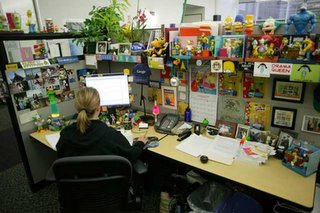With his Ph.D. from the University of California at Berkeley and research stints at Bell Labs and Xerox's famed Palo Alto Research Center, he had a solid reputation among geeks, cemented by his championing of the Java programming language as Sun Microsystems' chief technology officer. And he faced his first real management test as CEO of Novell, the troubled software maker that has fought a long, difficult war with Microsoft.
These days Schmidt is on a stellar winning streak. How does he do it? One rule was handed to him by Brin and Page when he walked in the door: Don't be evil.
The other one is a formula he uses to stay on track while innovating: Spend 70 percent of your time on the core business, 20 percent on related projects, and 10 percent on unrelated new businesses. Business 2.0's John Battelle talked to Schmidt to find out how he and his colleagues live by those rules.
How has "Don't be evil" helped Google?
When I showed up, I said, "You've got to be kidding." Then one day, very early on, I was in a meeting where an engineer said, "That would be evil." It was as if he'd said there was a murderer in the room. The whole conversation stopped, but then people challenged his assumptions. This had to do with how we would link our advertising system into search. We ultimately decided not to do what was proposed, because it was evil. That kind of story is repeated every hour now with thousands of people. Think of "Don't be evil" as an organizing principle about values.
You and I may disagree on the definition of what is evil, but at least it gives us a way to have a very healthy debate.
Does Google have some kind of grand strategic plan for the new products it creates?
Virtually everything new seems to come from the 20 percent of their time engineers here are expected to spend on side projects. They certainly don't come out of the management team.
What do you do with your 20 percent time?
Well, 20 percent time applies to the technical staff. It does not apply to sales or management. Here's how it works for management: We spend 70 percent of our time on core search and ads. We spend 20 percent on adjacent businesses, ones related to the core businesses in some interesting way. Examples of that would be Google News, Google Earth and Google Local. And then 10 percent of our time should be on things that are truly new. An example there would be the Wi-Fi initiative.




